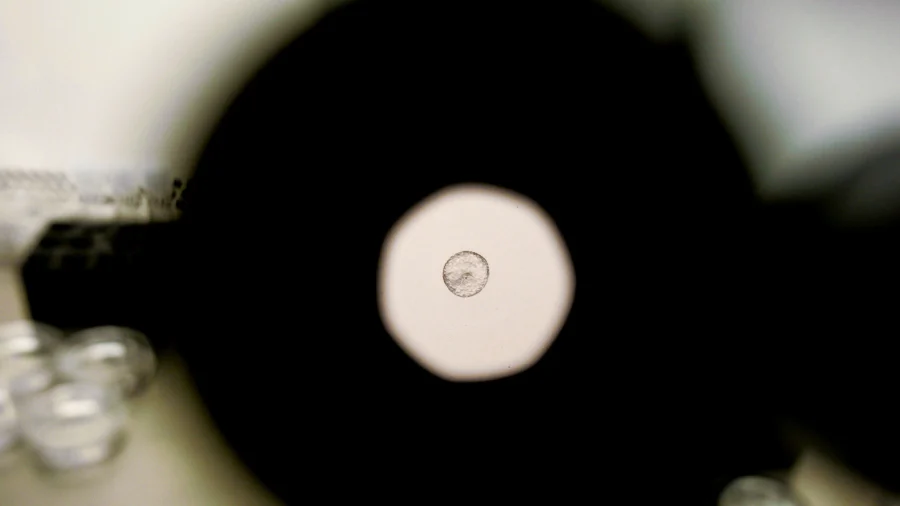The Alabama Supreme Court declared on Feb. 16 that human embryos kept outside the uterus are children according to state regulations and are thus covered under wrongful death laws.
The ruling came as part of a lawsuit in which plaintiffs claimed damages for embryos stored at a cryogenic facility that was destroyed.
In its decision, the Alabama Supreme Court pointed out that the central question in the case was whether unborn children located outside of a biological uterus at the time they are killed are exempted from the Wrongful Death of a Minor Act.
“The answer to that question is no: the Wrongful Death of a Minor Act applies to all unborn children, regardless of their location,” the court decided in a 7–2 ruling.
“Neither the text of the Wrongful Death of a Minor Act nor this Court’s precedents exclude extrauterine children from the Act’s coverage. Unborn children are ‘children’ under the Act, without exception based on developmental stage, physical location, or any other ancillary characteristics.”
Embryos Destroyed
The case was brought by a group of couples against a fertility clinic operated by the Center for Reproductive Medicine. Between 2013 and 2016, the couples approached the center to undergo in vitro fertilization (IVF) treatments. The center succeeded in joining eggs and sperm outside the womb, gestating the embryos for a few days, and placing them in a “cryogenic nursery.”
The nursery is a facility designed to keep embryos alive at a fixed developmental stage, preserving them at a low temperature. If properly maintained, the embryo can remain alive “indefinitely.”
In December 2020, a patient at the center wandered into the clinic, entered the cryogenic nursery, and removed several embryos. Since the embryos were stored at subzero temperatures, the removal “freeze-burned” the patient’s hands, causing the individual to drop the embryos on the floor, which ended up killing them.
The plaintiffs subsequently sued the center and the association managing it, pointing out that the facility was obligated to keep the cryogenic nursery secured and monitored at all times. They asserted claims under Alabama’s Wrongful Death of a Minor Act. The center and the association filed motions to dismiss the wrongful death claims.
A trial court sided with the center, stating that cryopreserved embryos do not meet the definition of a “child” or a “person.” As such, the loss of the embryos could not trigger a wrongful death claim. The plaintiffs appealed, and the matter went to the Alabama Supreme Court.
Extrauterine Children
The plaintiffs raised several concerns in the case regarding exempting extrauterine children from the Wrongful Death of a Minor Act.
Such a move would deprive their parents of any civil remedy against people who kill their unborn child after the child has left the uterus but before the child has been fully delivered from the birth canal, they said. They also warned that the exemption could raise “serious constitutional questions.”
The defendants argued that the embryos do not qualify as children or people. According to the majority opinion, the plaintiffs pointed out that such a condition would mean that “even a full-term infant or toddler conceived through IVF and gestated to term in an in vitro environment would not qualify as a ‘child’ or ‘person.’”
“And if such children were not legal ‘children’ or ‘persons,’ then their lives would be unprotected by Alabama law,” the opinion reads. “The plaintiffs argue that this sort of unequal treatment would offend the Equal Protection Clause of the 14th Amendment to the United States Constitution.”
The defendants argued that not creating an exemption for extrauterine children would result in “undesirable” public policy outcomes.
They claimed that the lack of an exemption would “substantially increase the cost of IVF in Alabama” and make cryogenic preservation onerous. The Medical Association of the State of Alabama stated in its amicus brief that the “costs and storage issues would be prohibitive.”
The ruling noted that these are policy-focused arguments that belong to the state Legislature and not the court. Judges are required to conform their rulings to the law and the Constitution, it stated.
“It is not the role of this Court to craft a new limitation based on our own view of what is or is not wise public policy,” the court stated.
This is especially true when the Alabama Constitution has an amendment “directly aimed at stopping courts from excluding ‘unborn life’ from legal protection.”
From The Epoch Times

